If we were to perform a google search for “Chess players”, most often than not, the top results that surface are of male players. It is only after approximately the 40th person does a female player’s profile appear after which the algorithm once again falls resumes presenting male players.
Women who play chess rarely receive the spotlight they deserve. The titles awarded to players by FIDE (Fédération Internationale des échecs), ICCF (International Correspondence Chess Federation), and others conferred by Chess governing bodies use ‘Master’ (a title used often to refer to someone of the male gender): Grand Master, FIDE Master, International Master. etc., irrespective of the gender identity of the players. While both men and women actively participate in the game of chess, the media representation predominantly focuses only on the male players.
This is largely driven by the taboo around women participating in sports and the anxieties several people have on seeing these women pose with confidence and fervour. Women in sports challenge the meek-domesticated gender trope that our society ferociously idealises. While chess is not in the obvious sense a physically aggressive sport, it is considered intellectually aggressive, which once again is a realm only men are expected to rule.
Thinking is power, and it is not something our society is comfortable with handing over to women. Women who think and openly express their thoughts have been, for the longest time, deemed as arrogant and frivolous, forcing them to suppress any form of intellectual expression. Women’s participation in a game such as chess once again breaks these barriers. However, this is conveniently not documented, allowing the struggles of women in the sport and their journey to be lost amongst the enthralling craze media coverage has on men’s chess.
historically as well, where female chess players in the country have largely been unrecognised and under-acknowledged. This has also been a general trend within sports, where male domination is starkly visible, and it is disheartening to observe that such sexist trends continue to linger on
The 44th Chess Olympiad which was hosted in Chennai, Tamil Nadu, was attended by around 2000 players from over 200 countries across the globe. The event ended on the 9th of August. The Indian women’s A team which was initially in the lead for the gold medal, bagged the bronze medal while putting up a tough game.
The men’s A and B team also initially standing in second place along with the United States of America, won the bronze medal. While the women’s team played phenomenally and maintained an upper hand in the game for the longest part of it, the media coverage and representation focused predominantly on the men’s team and their game.
This has, however, been the case historically as well, where female chess players in the country have largely been unrecognised and under-acknowledged. This has also been a general trend within sports, where male domination is starkly visible, and it is disheartening to observe that such sexist trends continue to linger on.
It was also interesting to observe that stereotypes around women players came from women themselves. Eva Repková, an international master who heads FIDE’s Commission for Women’s Chess, commented, “This game doesn’t come naturally to women. Some people might not like that it’s more natural for men to pick chess as an interest or women to pick music or arranging flowers.” India’s top female player, grandmaster Koneru Humpy, said that “you have to accept” that men are better players—in an article titled Why Women Lose at Chess.
Also read: Did You know About Chess Grandmaster Padmini Rout?
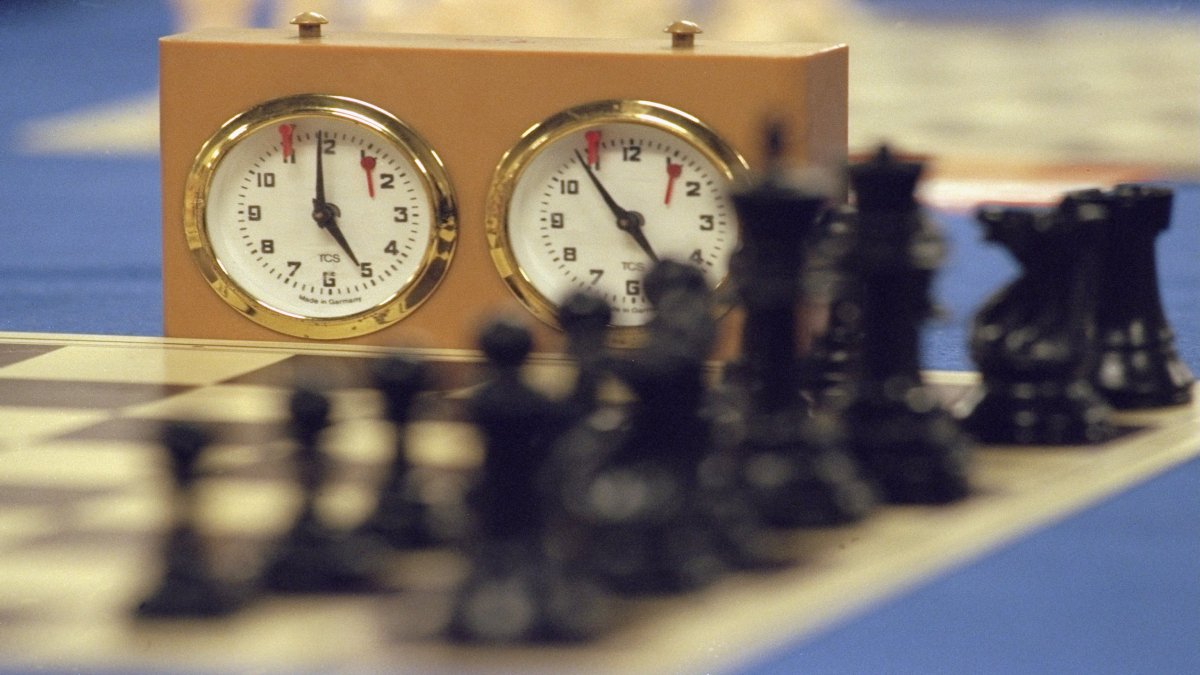
Wei Ji Ma, a chess player, however, has a different take on why most of the top players in chess are men: “The fact that top male players are consistently ranked higher than top female players may have nothing to do with talent, and everything to do with statistics and external factors.”
In an article for Slate, she begins by quoting psychologist Merim Bilalic, who highlights the “logical flaw” in using differences in top rankings as the basis to determine whether men or women are better players, because if one group were to have more players than the other, then by chance, the best player in the bigger group will possibly outperform the best player from the smaller group.
Wei Ji Ma, in addition to this statistical analysis, also highlights socio-cultural factors that affect the number of women playing chess. “Top female players are often relegated to women-only invitational tournaments, most likely limiting their ability to increase their ranking. It is possible that national federations invest less in top female players than in their male counterparts, for example, in terms of training or finding sponsors… women might be more burdened with childcare duties than men and therefore have less time to play in and prepare for tournaments.”
Wei Ji Ma’s article is an important analysis of why comparing the capabilities of male and female chess players is not effective in understanding why male chess players are higher in number and more successful and how in trying to do so, we end up reproducing dangerous gendered stereotypes.
The recent Chess Olympiad garnered a lot of attention and also brought to the spotlight the Indian women’s chess team. Even though the team settled for a bronze medal, the gallantry with which they played till the end has impressed chess viewers far and wide. Hopefully, this is a positive turn towards women’s representation within chess and sports at large and allows for more open conversations about women players’ participation, struggles and achievements while establishing themselves in a male-dominated field
While the representation of women in sports and specifically in chess is bleak, their accomplishments know no bounds and the recent Chess Olympiad in Chennai is evidence that the future of women’s chess is bright and strong. On that note, let us look at the accomplishments of some of the Indian women chess players as a means of acknowledging their achievements in the game of chess:
1. Koneru Humpy
Hailing from Vijaywada, Koneru Humpy became the youngest woman to achieve the Grandmaster title at the age of 15 in 2002. She also became the second woman, after Judith Polgar, to go above the 2600 Elo rating mark, with a rating of 2606 in October 2007. She was born Koneru Hampi, but her father later changed the spelling of her second name to Humpy, to supposedly give the name a more Russian ring to it.
Humpy went on to bag several awards including the British Women’s Championship in 2000 and 2002, the 10th Asian Women’s Championship, and the Indian Women’s Championship in 2003. In 2009, she held the All India Chess Federation responsible for hindering her participation in the 37th Chess Olympiad which was hosted in Turin, Northern Italy.
Even with all these hurdles, Humpy established herself as a seasoned player and dominated the world of women’s chess. In 2017, she took a maternity sabbatical and returned 2 years later to claim the title of the women’s World Rapid Champion.

2. Tania Sachdev
Tania Sachdev from Delhi holds the titles International Master and Women’s Grandmaster. In 2006 and 2007, she won the Indian women’s chess championship and became a two-time champion. The same year, she won the title of the Asian Women’s Chess Champion. She is also the three-time champion of the Commonwealth Women’s Chess Championship.
She was introduced to the game at the age of 6, with the support of her mother, and trained under K. C. Joshi in her initial years. In 2009, Sachdev was bestowed with the Arjuna Award, which is the second highest sporting honour in India. Apart from being a chess player, she is also a chess presenter and commentator.
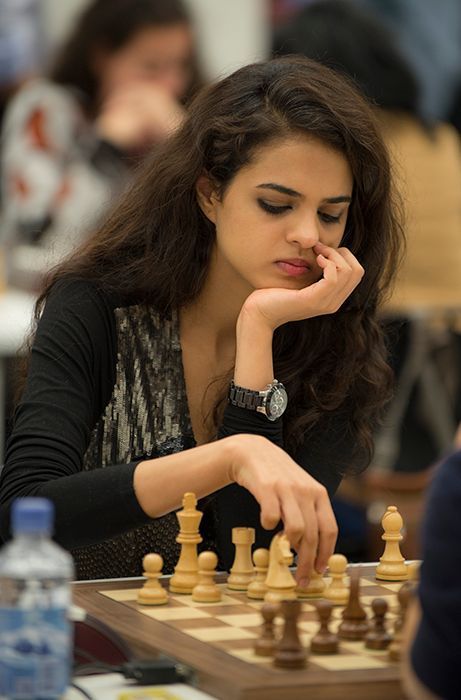
3. Harika Dronavalli
Harika Dronavalli from Guntur, Andhra Pradesh, holds the FIDE title of Grandmaster. In 2008, she was awarded the Arjuna Award. In 2016, she emerged the winner of the FIDE Women’s Grand Prix event which was held in Chengdu, China which led her to move from the 11th position to the 5th position in the FIDE women’s world rating.
She is noted to be the second woman after Koneru Humpy to gain the title of Grandmaster. She received a lot of attention during the 44th Chess Olympiad held in Chennai as she participated in the event while being 8 months pregnant.
The recent Chess Olympiad garnered a lot of attention and also brought to the spotlight the Indian women’s chess team. Even though the team settled for a bronze medal, the gallantry with which they played till the end has impressed chess viewers far and wide. Hopefully, this is a positive turn towards women’s representation within chess and sports at large and allows for more open conversations about women players’ participation, struggles and achievements while establishing themselves in a male-dominated field.
Also read: Commodified And Consumed: To Whom Does The Sportswoman’s Body Belong?
Featured Image Source: Women’s Web

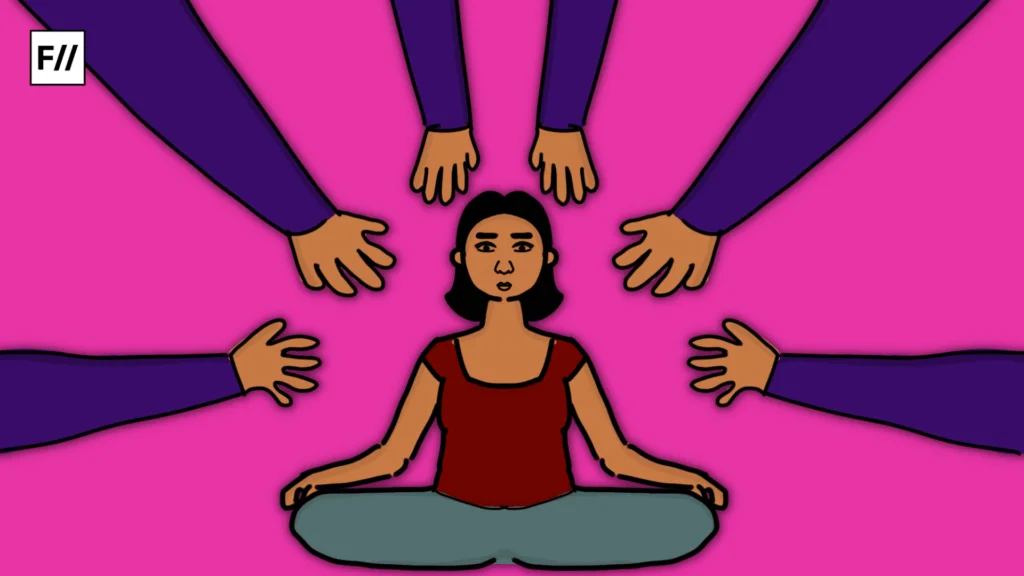
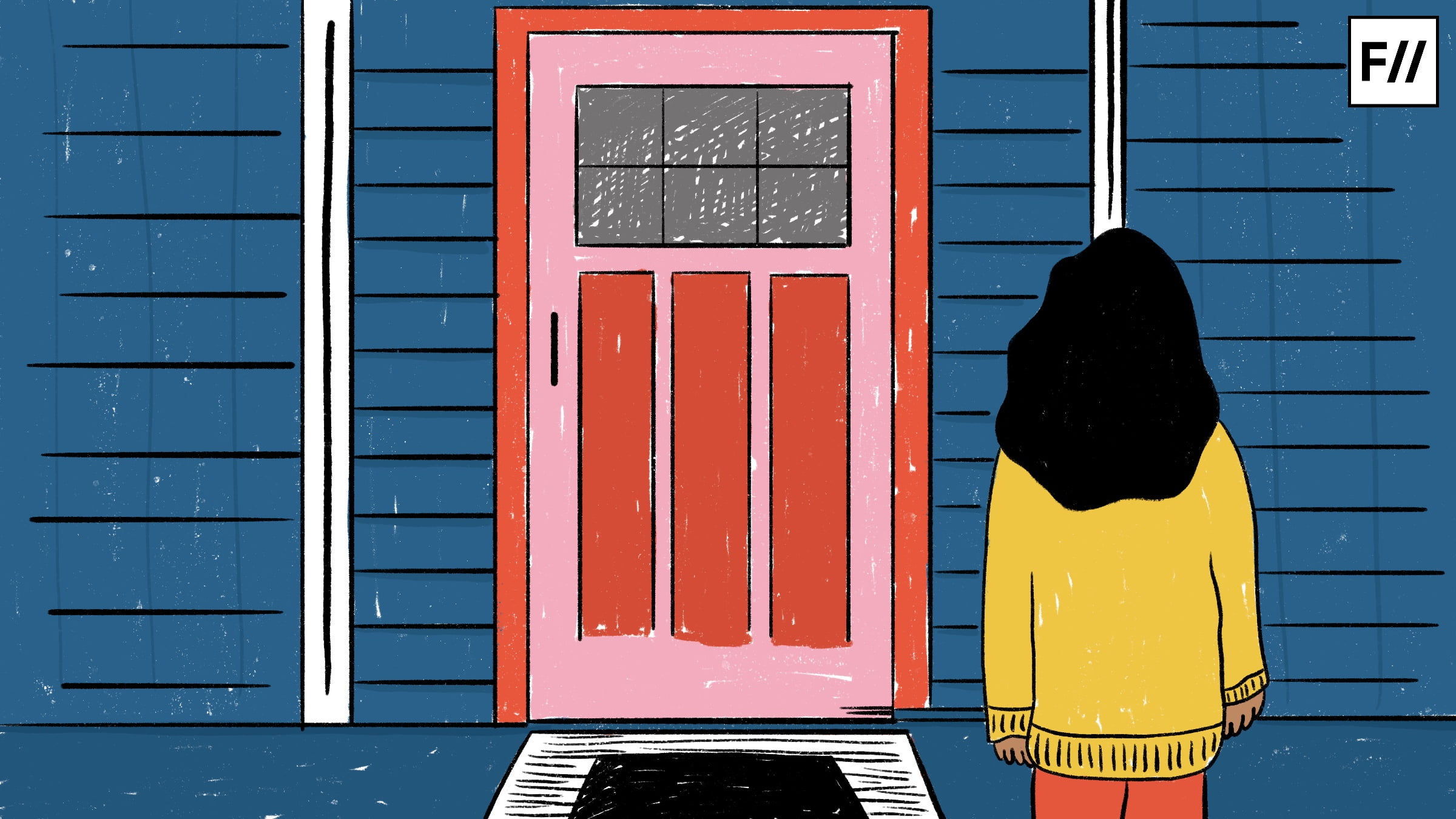
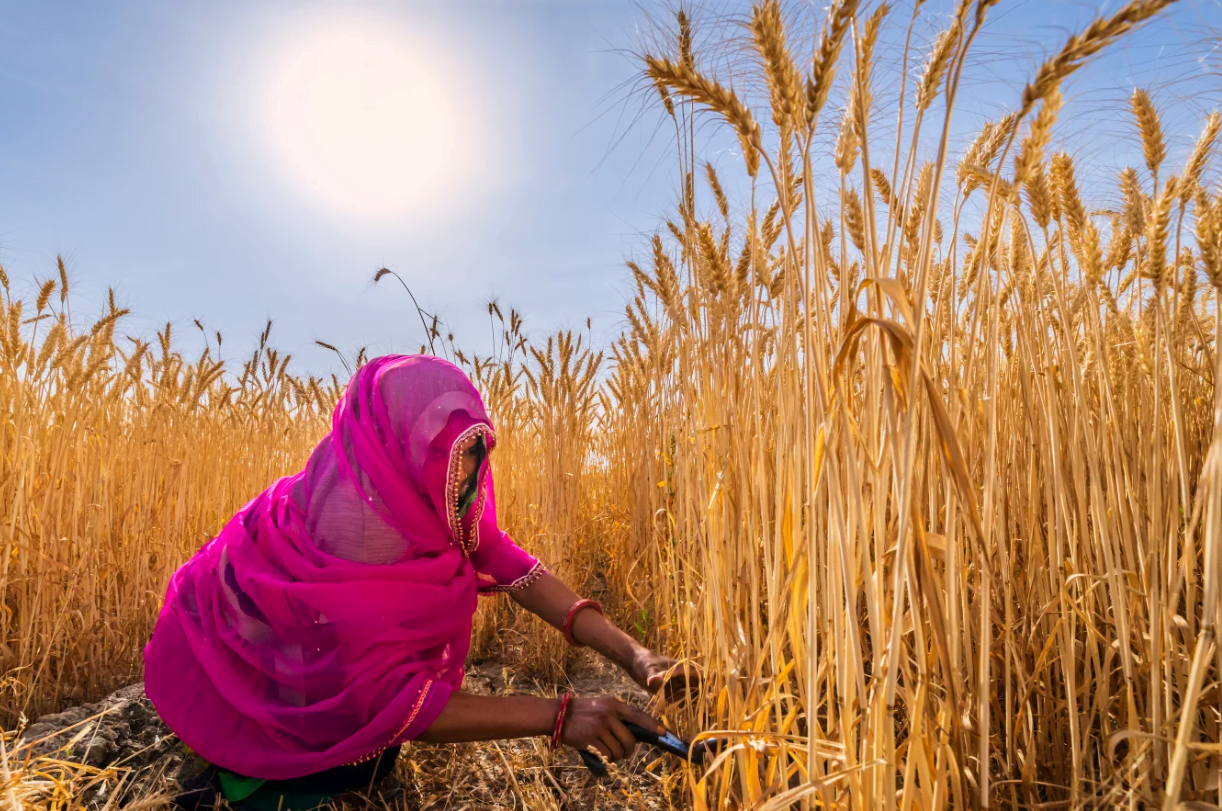

Try researching about why we have seperate men and women chess, few facts will definitely sound ugly but the truth is Chess is strategy game and men far excel in strategy than women.
Feminism in any democracy is mockery of intelligence and also feminist always want preferential equality, as in equality in selective section/job.
Interesting article – although ICCF removed gender completely a number of years ago (We do not ask for or record gender when players register), we have only one set of titles – the older gender-based women’s titles may still be used by those who achieved them, but no new ones are issued. We choose to use “Master” in English in its genderless meaning.